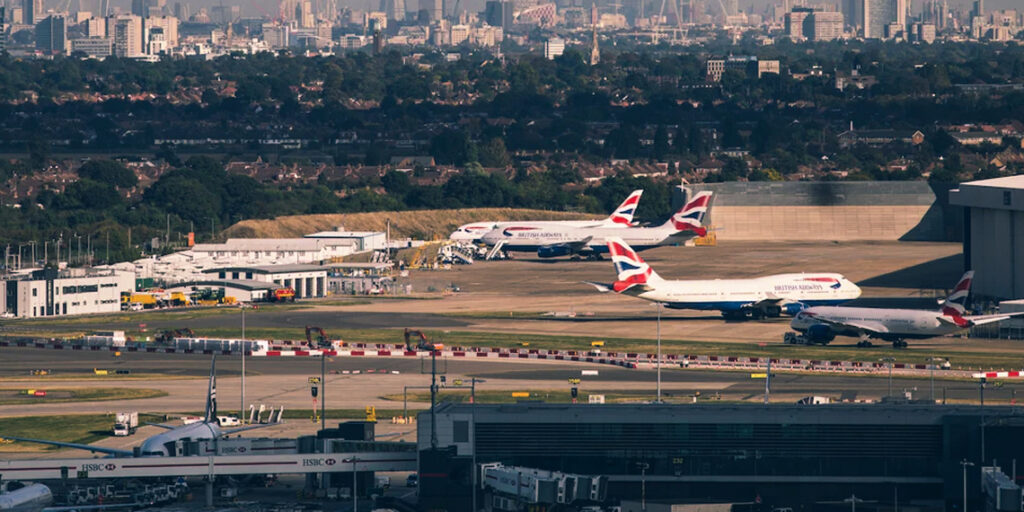New net-zero aviation rules introduced by the UK government could significantly increase the cost of family holidays, with official forecasts warning of potential price hikes of over £300 for a family of four by 2040.
The Sustainable Aviation Fuel (SAF) mandate, which came into effect last week, requires airlines to incorporate at least 2% green fuel into their operations, increasing to 10% by 2030 and 22% by 2040.
This initiative is part of the government’s efforts to reduce carbon emissions, substituting traditional jet fuel with greener alternatives derived from materials such as cooking oil and animal waste.
Impact on Travel Costs
Government analysis reveals that the SAF mandate could lead to a 22% rise in flight costs by 2040, with up to 80% of these additional expenses passed directly to consumers. For a typical family of four, this could mean an additional £302.40 on holiday flights.
The policy has sparked concerns about its financial burden on households already facing rising costs. January, a peak month for holiday bookings, has highlighted these worries as families plan their summer getaways.
Industry and Political Reactions
Airlines have already warned of price increases. British Airways’ parent company, International Airlines Group, has raised concerns about the SAF mandate’s impact on ticket prices.
Virgin Atlantic and Lufthansa have introduced environmental surcharges to cover the costs of using SAF, though some of these levies remain optional or unimplemented.
Critics, including Lord MacKinlay, chairman of the Net Zero Scrutiny Group, and former business secretary Sir Jacob Rees-Mogg, have labelled the policy as “green madness.” They argue the initiative prioritises environmental ideology over the financial well-being of the public.
On Saturday, the Labour Party faced criticism for its perceived role in escalating living costs. Accusations of imposing “green levies” on families were levelled against the party as part of a broader critique of its net-zero strategy.
Wider Economic Pressures
The SAF mandate follows other cost-of-living pressures tied to net-zero policies. A recent increase in Air Passenger Duty (APD), announced in October’s Budget, is expected to add as much as £400 to some family holidays.
Additionally, a “grocery tax” on plastic packaging, introduced this month, could raise household shopping bills by £56 annually.
The soaring cost of SAF production is a major hurdle. Currently, SAF is up to seven times more expensive than traditional jet fuel, with limited domestic supply raising concerns about affordability and availability.
Government’s Projections
While the government’s worst-case scenario forecasts a 22% rise in flight costs, it maintains that these estimates are overly pessimistic.
In its most optimistic outlook, the SAF mandate would increase the cost of a one-way ticket by just £3.90 by 2030 and £9.40 by 2040.
Despite assurances of modest increases, critics argue that the cumulative impact of green policies, from aviation to household energy, risks burdening families further amid a cost-of-living crisis.


